A proposal for a new denominacion de origin (DO) for an agave spirit raises crucial questions about a DO’s real purpose. The latest point of contention in these debates comes to us from Jalisco and Colima, where officials have proposed a new DO for “tuxca,” supposedly a regional mezcal from southern Jalisco.
Like the DOs for tequila, mezcal, and raicilla, this geographical indication would specify a region where certified distillers, or taberneros, are allowed to label their spirits as tuxca. Although the area is home to one of the oldest mezcal producing traditions in Western Mexico (1), it falls outside the DOs for both raicilla (which is produced elsewhere in Jalisco) and mezcal. Thus, mezcal producers from southern Jalisco can only legally label their product destilado de agave, or “agave distillate”—not the sexiest of names.
Proponents claim that a tuxca DO would attract tourism and elevate the producers and folkways of the region. But a group of Jaliscan taberneros is crying foul. In a formal statement and petition, these distillers vehemently denied affiliation with any proposed tuxca DO. The statement starts with a bang: “the best way to destroy a traditional mezcal is to create a Denomination of Origin.”
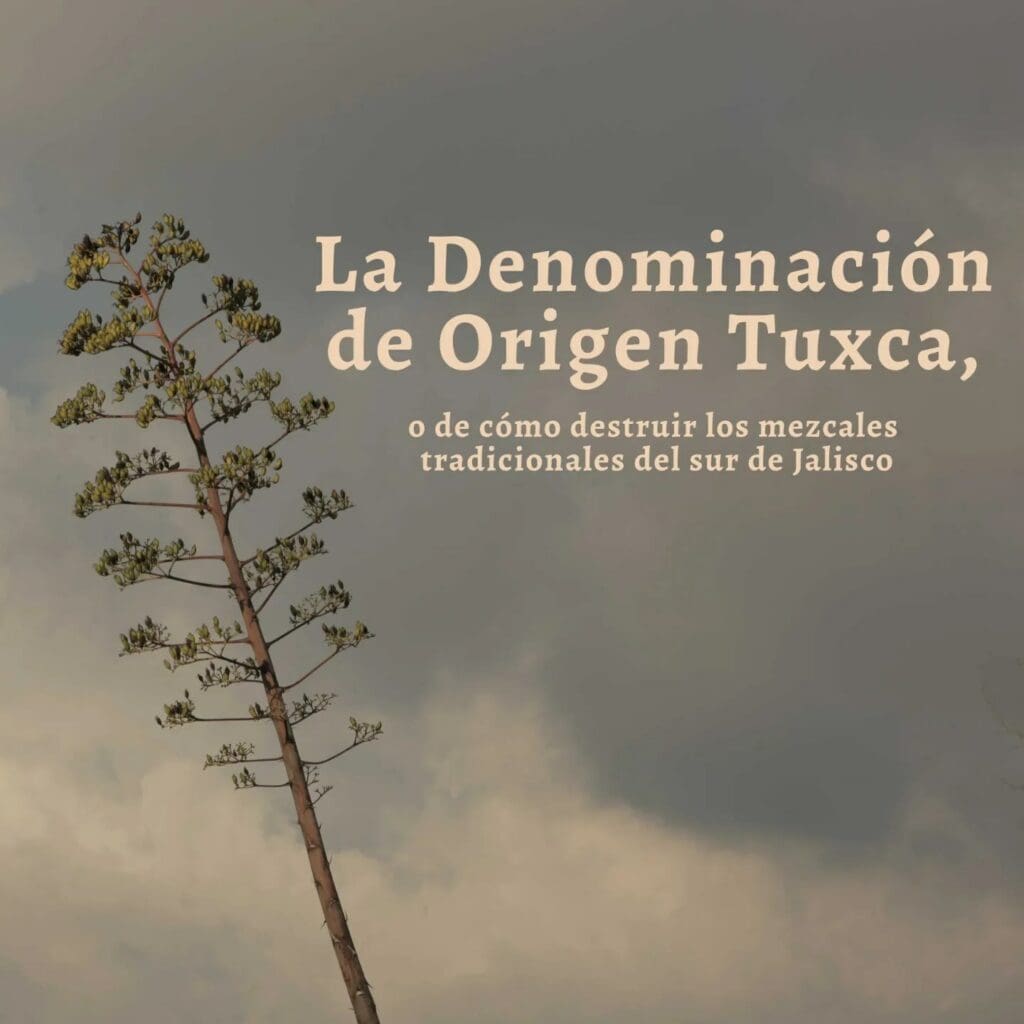
To gain clarity, I traveled to Zapotitlán del Vadillo and spoke with maestro tabernero Don Macario Partida Ramos and his sons Miguel Angel and Salvador, makers of Chacolo and key members of the group that’s protesting.
The roots of controversy
In accordance with regional tradition, the Partidas roast their agave in a stone pit, ferment in wood or stone, and make their vino de mezcal in Filipino-style stills heated by wood fires. As we sit near their open-air taberna and look out over fields of agave dotted with wildflowers and cacti, Miguel Angel and Salvador explain the controversy.
The petition was in part a response to a January 13 article in Milenio, a prominent Mexican news source, which reported on the possibility of a new DO in Jalisco. Several small distillers are mentioned, pictured, or quoted in the article. And while none of the small producers say anything about the proposed DO, the reader is left with the distinct impression that they support the idea. This isn’t true. The Partidas say their cohorts were approached under false pretenses and weren’t warned that their images and quotations would be published, let alone in a document that presents the proposed DO in a positive light.
“Pure lies,” says Salvador Partida Rivera.
Throughout the Milenio article, the author refers to the local mezcal as tuxca and mentions several prominent “tuxca” brands, including Chacolo, although the family wasn’t interviewed.
In fact, we were fortunate that the Partidas were willing to talk to us. Miguel Angel remarks that the distortion of the Milenio article has made the local producers wary of talking to either officials or journalists.
“They flip the information around and they distort it. That’s why we’re not receiving anybody. Many times people just want to see a conflict,” Salvador says.
We were vetted by the group and were the first publication they had spoken to since posting the petition.
As we recently covered, Miguel Angel and Salvador are fourth generation producers. The family grow their own agave and see themselves as stewards of the land. They have a stringent commitment to sustainable agriculture.
The Partidas are severely critical of the proposed DO. For starters, they point to the word “tuxca.” The patriarch Don Macario is emphatic that they have always called their spirit vino de mezcal—not tuxca.
“What we call it here is a mezcalito or a vinito,” he says. “We’ve called it that for all time.”
So what is tuxca?
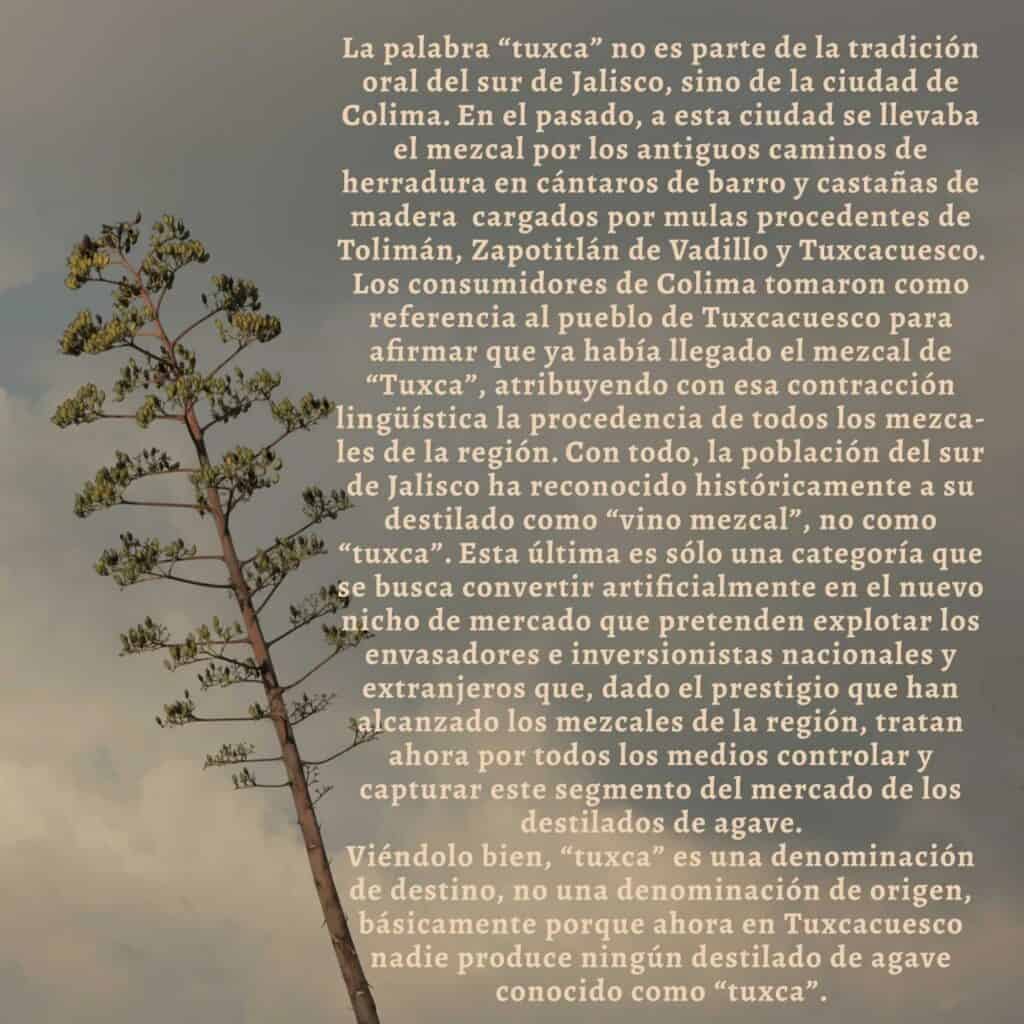
The word “tuxca” doesn’t stem from the oral tradition of southern Jaliscan producers. It originated in the capital city of the neighboring state of Colima, which received its mezcal by mule train from Jalisco, via a route that passed through the town of Tuxcacuesco. Consequently, drinkers in Colima began calling this mezcal “tuxca.” But no one currently produces tuxca in the town of Tuxcacuesco.
The logistics around the proposed DO are just as convoluted as the issue of nomenclature. Two distinct groups are proposing a tuxca DO, though they’re apparently working separately. Jesús Israel Nava Solano, the head of the department of tourism for Zapotitlán, says he has convened with representatives from the CRT (Tequila Regulatory Council) to work on a DO that would include various towns in Jalisco. But Miguel Angel is critical that this DO is excluding key production areas. Meanwhile, the other proposed tuxca DO, which is backed by government officials of the MORENA political party in Colima, includes parts of the state of Colima, which is a problematic addition.
“They don’t produce mezcal in Colima,” Miguel Angel says. “A couple of months ago they built a taberna, but it’s more for tourism.” He dismissively mentions one distillery in Manzanillo that solely distills blue agave yet calls it mezcal.
In their petition, the small producers are emphatic that they have no desire to establish a DO for “tuxca” and that the proposal comes from “a legion of opportunistic bottlers” who seek to take advantage of the prestige garnered by southern Jalisco’s traditional mezcal.
This reputation is the result of inherent quality, but also of active educational efforts on the part of the producers.
“We’ve worked for twenty years to establish this prestige, and they want to appropriate it,” Miguel Angel says.
Fourteen years ago, fourteen maestro taberneros organized a meeting in conjunction with La Logia de los Mezcólatras. The producers came from Chancuellar, Loma de Guadalupe, Loma de Perempitz, Tetapán, Zopotitlán, and Canoas. Their goal was to profile the mezcals of the region, based on production processes, agave varieties, and regional know-how. They still hold these tastings annually on the Partida ranch.
Despite the coalition’s strong words on the subject of DOs, Miguel Angel stresses that the issues addressed in the petition are very specific.
“We’re not opposing this DO. The petition is clear on that,” he says. “All we’re saying is that we’re not asking for this Denomination of Origin. And, furthermore, don’t use our names nor our brands nor our images to suggest that.”
He says that some people have been dramatizing the situation, saying either that the small producers are against the proposed DO or that they’re only against it because they don’t understand how it will help them.
Actually, these producers have been talking about the drawbacks and benefits of a DO for decades.
“Fifteen years ago, we petitioned to be part of Denomination of Origin for Mezcal, but the CRT [Tequila Regulatory Council] opposed it and we weren’t accepted.” Miguel Angel says.
What is the purpose of DOs?
In the ensuing years, the conversation about DOs has become more divisive. The tequila DO has undoubtedly fomented economic growth and cultural pride by restricting tequila production to Mexico, and the same can be said for the otherwise problematic mezcal DO. Meanwhile, proponents of the nascent raicilla DO have done much to promote a hitherto obscure regional mezcal, arguably giving brands better opportunities to expand to international markets.
But other claims about the benefits of DOs are under intense scrutiny from both artisanal producers and academics, who question if Mexican DOs really fulfill the promise of the original idea, which emerged in France in the late 19th Century.
The first real law tying production of food or drink to a particular place, was passed in France in 1905 (2). In France, appellations of origin protect place names (like Champagne) used to describe a product that originates in that region when “the quality and characteristics” of that product are “due to the geographical environments, including both natural and human factors.” In the ensuing years, DOs have been established around the world. Proponents claim the laws create employment opportunities, preserve local folkways, and even protect biodiversity.
But do Mexico’s geographically large alcohol DOs really protect the small producers creating a specific product in a specific region? And do they preserve biodiversity or rather encourage growth that leads to deforestation and monoculture?
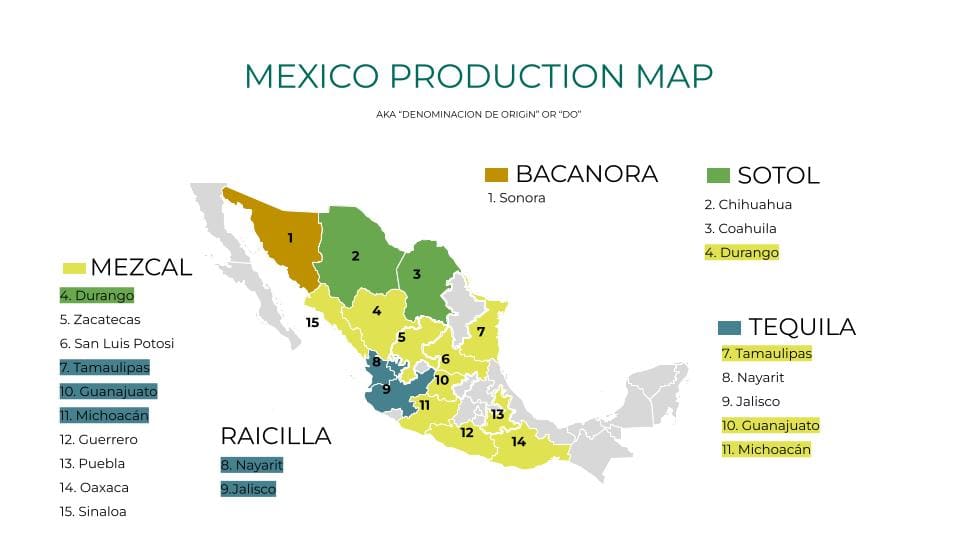
Carlos Lucio, a sociologist who has conducted extensive research in southern Jalisco, worked with the local producers to draft the statement of protest against the proposed tuxca DO.
When I asked him if he thinks there is any way any kind of DO could benefit the small mezcal producers of southern Jalisco, his answer is a sharp “No.”
“Those who benefit from the exclusive use of a category are those who can comply with all legal and formal aspects of quality certification,” he explains. Which means that many small producers don’t have the money or time to jump through the required hoops. “In the case of mezcal,” he says, “most producers within the DO sell it as agave distillate because the certification processes are expensive and complicated. In the case of certified mezcal, the price is higher due to compliance with NOM-070.”
This rings true for Miguel Angel, who is no longer interested in extending the mezcal DO to his region or in establishing a new DO. He would rather label Chacolo as a “destilado de agave” than deal with the high cost of certification and the difficulties of staying within the strict and sometimes seemingly arbitrary restrictions imposed by Norms–the specific rules that govern the production of spirits in an established DO.
“I see the Denomination of Origen for tuxca as a business, more particularly, a political business, and an economic business of a group of business people. That’s how I see it,” he says, as he pours us glasses of Chacolo.
“Denominations of origen help industrial producers,” he says. “But the benefit for traditional producers? I don’t believe it.” He cites the nearby raicilla DO. “To date, how has it benefited the small producers? They continue to sell in bulk. The bottlers show up, the businessmen show up, and they buy the product cheap, and they sell it dear. Therefore, I don’t think a denomination of origin is a solution for small producers.”
He’s also worried that the people behind the Tuxca DO don’t have any serious concern for environmental issues.
“They’re not seeing the problems with the ecosystem.”
The environmental impact of DOs
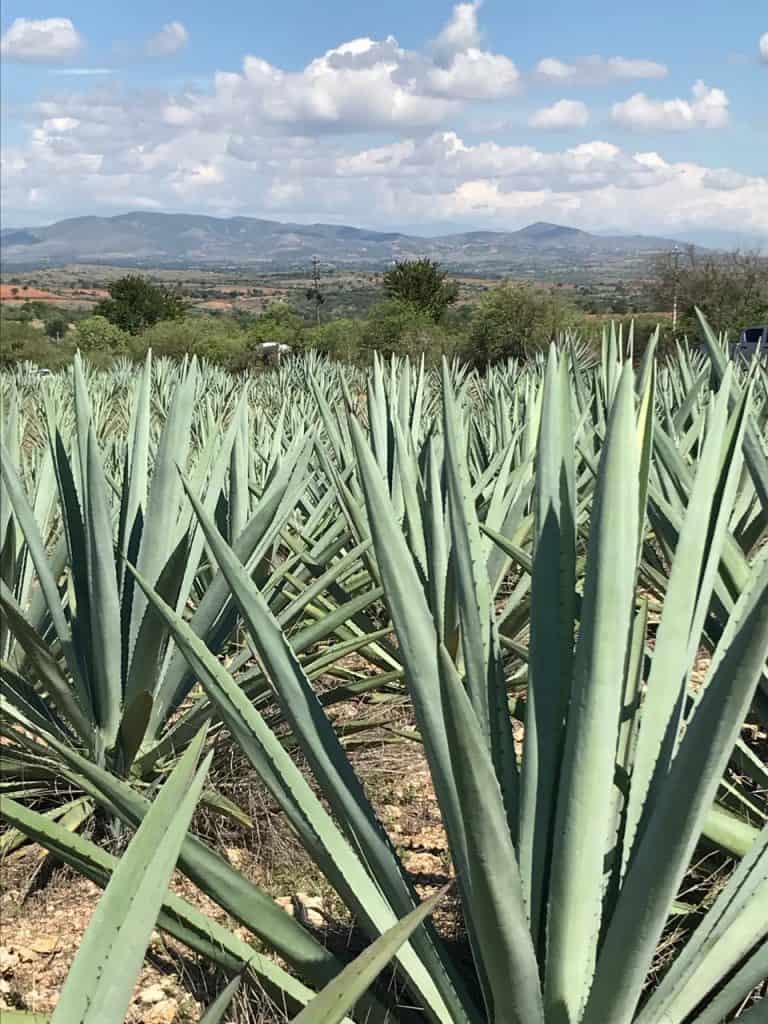
He’s not alone in his concern. Increasing bodies of research, including Carlos Lucio’s, suggest that Mexico’s DOs have spurred increased production, leading to deforestation of wild agave, disruption of ecosystems, and decreased biodiversity. As Lucio has written, “In short, DOs, as implemented in Mexico, do not protect either the producers or the natural resources with which these beverages are made.” (3)
By some botanists’ reckoning, Jalisco is second only to Oaxaca when it comes to diversity of agave. The Partidas grow 16 varieties of agave on their land. To promote biodiversity, they have begun growing agave from seed. As a whole, their coalition of small producers has worked to defend, promote, and protect the rich biocultural heritage of the region.
To that end, they have been collaborating with academics and local officials to create an alternative form of certification, a “green seal” that indicates a product was made using sustainable practices and that the producers are committed to preserving the diverse ecosystems and ancestral agricultural traditions of the mountainous regions of southern Jalisco and northern Colima, known in Spanish as the Corredor Biológico Nevado de Colima – Sierra de Manantlán.
Many of the problems with DOs and Norms in Mexico arise because regulations are influenced by both wealthy stakeholders and powerful decision makers who are typically relatively ignorant of the production process. The situation in southern Jalisco is a good reminder to respect the agency of rural producers—who in this case have their own ideas on how to better protect their lands and legacies.
1 Machuca, Paulina. 2018. El Vino de Cocos en la Nueva España. Author’s note: Machuca dates the first reference to production in this area to 1616.
2 Bowen, Sarah. 2015. Divided Spirits: Tequila, mezcal, and the Politics of Production
3 Lucio, Carlos. 2023. “Intensificación Agroextractiva y Crisis Socioambiental de los Destilados de Agave en Mexico” from Extractivismo, contaminación y luchas socioambientales en México. (author’s translation)

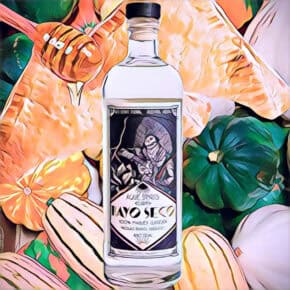
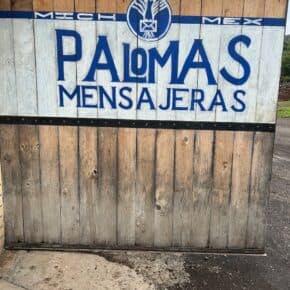
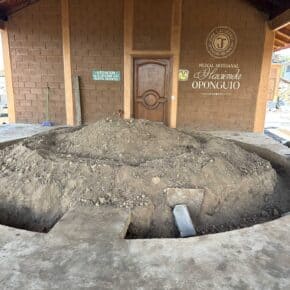
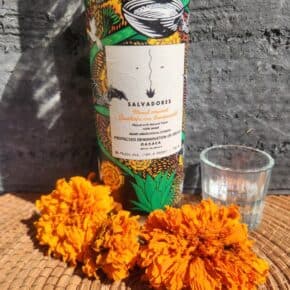







Leave a Comment